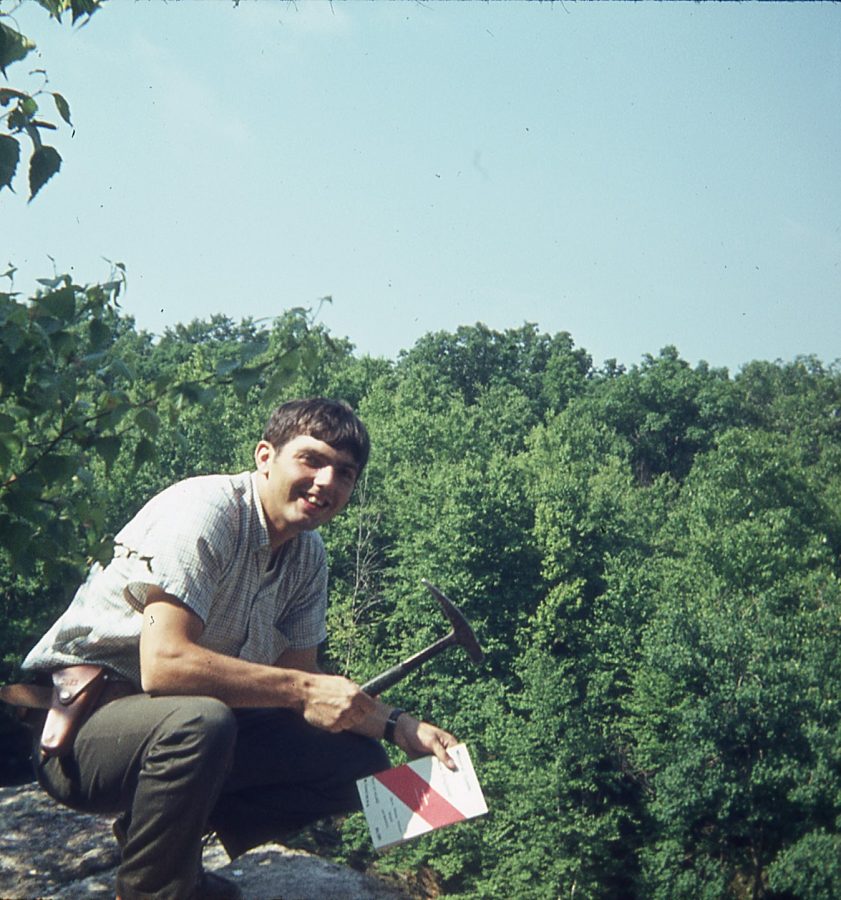A Drastic Turn for UVM’s College of Arts and Sciences: A Series of Perspectives from Professors, Current Students and Alumni Part II
January 23, 2021
A Geology Alumni’s Perspective
Woodrow Thompson, an alumnus of UVM’s graduate Geology program, 1971, emphasized the need to have a Geology department in the state of Vermont. Aside from working full time for the Maine Geological Survey from 1975 to 2014, Thompson has also served as a busy lecturer at the University of Maine, Colby College and the University of Maine Farmington to fill in for absent faculty members. Having led many educational field trips in the White Mountains with the Mount Washington Observatory and the New England Intercollegiate Geological Conference, he has also published research on the glacial geology of Maine and the White Mountains, served as the chief compiler and science editor for the glacial map of Maine and mapped all over New England. For Thompson, no day is ever the same in geology.
Even in retirement, Thompson continues to map for the State Geological Survey in New Hampshire.
According to Thompson, there are many aspects of geology in our day-to-day lives that people are unaware of such as mineral products in food and drinking water. From the groundwater located in gravel deposits, to the soils that Vermont farmers thrive on, to the many geological hazards such as landslides and issues of water quality, geology surrounds us.
“Geology teaches people about how the earth is made, the mountains and how our oceans formed. It impacts all facets of our environment,” Thompson said.
While most states have a geological survey, Vermont has relied on UVM’s geology department for mapping projects and discussing geological hazards. Without the Geology department, what will happen if those projects are put on hold?
Thompson, who studies the effect of the Ice Age and the glaciers that once covered the wasteland, plays an important role when it comes to studying climate change and global warming. Thompson said geologists study these effects by taking samples of sediment core from the bottom of the lake, organic remains, pollen content, oxygen isotopes and by reconstructing a record of climate and vegetation change since the glaciers disappeared.
Cutting the geology program means students will miss out on valuable, hands-on experiences. Going to school in Burlington, with access to Lake Champlain and the Champlain Valley region, is a “wonderful, natural laboratory,” Thompson said, to learn about the history of the earth. With shell fossils that are hundreds of millions of years old, students are able to become easily fascinated with science.
“Where Lake Champlain is now, it was all ocean. The ocean came all the way up through the St. Lawrence Valley and into the lake where you can find marine clays and real shells, not just the impress,” Thompson said. “It would be a shame not to have this opportunity for students.”
With climate change, Thompson also emphasized the importance of geology in studying the recurring forest fires. He said geology students have been taking survey cores from lake bottoms and looking for charcoal layers to prove past fires.
During his time at UVM, Thompson remembers that welcoming, tight-knit crew of people from graduate students to faculty members, who possessed a lot of excitement in what they did. According to Thompson, geology is an enriching, exciting field when the funding exists to support it. Aside from hearing about natural disasters on the news, with Thompson’s exercise in glaciers, human beings need to be more “attuned” to the effects, which is a heavy topic in geology.
When word got out about the cuts, as the Secretary of the Friends of the Pleistocene, Thompson sent an email to a couple hundred people throughout Canada, New England and Pennsylvania from other colleges and organizations,and wrote letters to the UVM administration to show support and respect for the program.
“You can go anywhere in the world from the North to the South Pole. I’ve worked in Antarctica, Idaho and all over the mainland,” Thompson said. “Geology is worldwide, you can’t get away from it.”


Louise May Thompson • Jan 28, 2021 at 1:48 pm
Nice summary of Woody’s thoughts and ideas. I enjoyed reading your article today. Thank you.